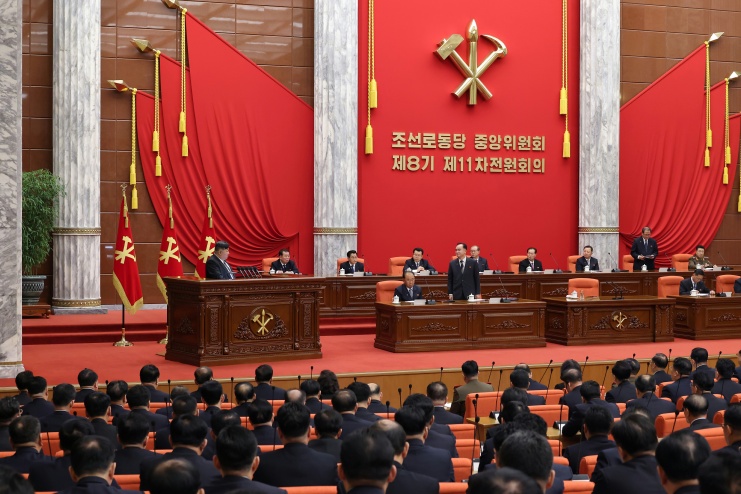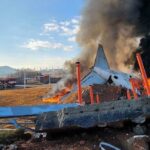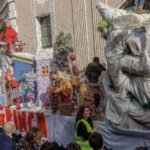
North Korea’s ruling party recently concluded a plenary meeting to set its agenda for the new year. While some observers anticipated strong messages directed at the U.S. or South Korea, the regime instead focused primarily on domestic matters.
The Rodong Sinmun newspaper reported that during an extended meeting from December 23-27, the Workers’ Party of Korea’s Eighth Central Committee discussed strategies for countering the United States. North Korean leader Kim Jong Un attended the session, where the party outlined plans for what it called “aggressive” responses to protect national interests and security.
The party characterized the U.S. as fundamentally anti-communist and criticized the strengthening military alliance between the U.S., Japan, and South Korea, which it described as “a nuclear military bloc for aggression.” However, the regime stopped short of detailing specific actions or response strategies. This cautious approach may reflect North Korea’s wait-and-see attitude as Donald Trump prepares to return to the White House.
Notably, the regime made only passing reference to South Korea, dismissing it as an “anti-communist outpost of the U.S.” This minimal external messaging marked a departure from previous years, according to South Korea’s unification ministry spokesperson Koo Byoung-sam, who suggested that Pyongyang is prioritizing internal stability during this period of domestic and international uncertainty.
The session itself broke with tradition in several ways. Rather than providing daily updates throughout the meeting, state media released a single comprehensive report after its conclusion. Additionally, the session wrapped up earlier than usual, rather than continuing through Dec. 30 or 31 as in previous years.
In his speech, Kim claimed North Korea had achieved “successes of strategic significance” and established itself as a “powerful independent force” promoting a “righteous multi-polar world.” While positioning North Korea as part of an anti-Western bloc, he notably omitted any mention of military cooperation with Russia or North Korean involvement in Ukraine.
Kim also praised the agricultural sector for achieving a “bumper harvest” and strengthening the country’s self-sufficient economy.
The session covered several key areas including a review of 2024 policies and planning for 2025, an assessment of the party’s Central Inspection Commission, evaluation of Kim’s “20×10 regional development policy,” measures to strengthen educational foundations, budget review and planning, party structure, and organizational matters.
















